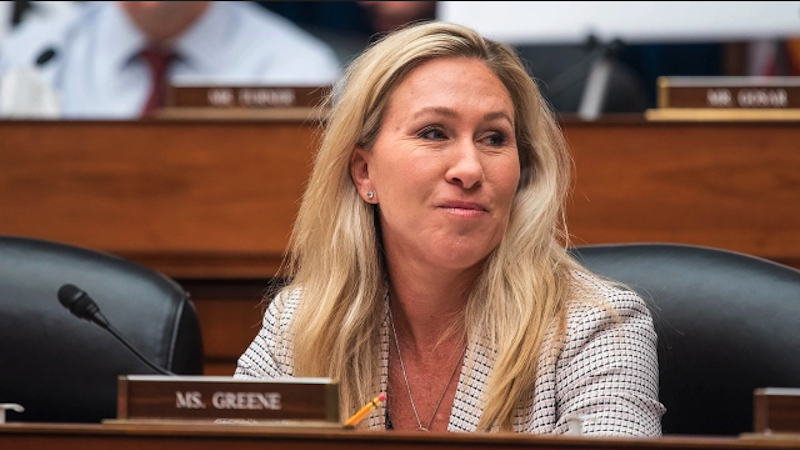
Needed: Bipartisan support for America’s global leadership
By Ariel Cohen, Alum of The Fletcher School of Law and Diplomacy at Tufts University
A minority of Congressional Republicans are turning the U.S. response to Russia’s aggression in Ukraine into a partisan issue. While demanding a thorough accounting of where U.S. dollars are going in the war effort certainly makes sense, flatly opposing aid to Ukraine is divisive and damaging to U.S. global interests, as U.S. allies are increasingly under Russian pressure.
Republican isolationists and America-firsters would do well to acquaint themselves with what is at stake. Today Russia and China, which announced a pact of “limitless friendship” three weeks before Putin invaded Ukraine, are challenging America. In attacking Ukraine, Russia sought to become a continental hegemon in Europe. China’s hopes are to exhaust and demoralize the West, then move against Taiwan, and shift the balance of power in the Asia-Pacific region — and the world — in Beijing’s favor.
It is rare that world wars go as intended, but in the Napoleonic wars and World Wars I and II, the aggressors lost their bids for global dominance only after protracted struggles. Russia’s hard knocks on the gates of Europe this time around may be even more dangerous because of nuclear weapons.
The anniversary of Russia’s invasion of Ukraine highlighted the Kremlin’s miscalculations. Moscow thought that it would take of the whole country in two or three weeks. Putin took stock of Joe Biden in the U.S.-Russian summit in Geneva in June of 2021 and decided that he could steamroll the elderly president. And he had nothing but disdain for French President Emanuel Macron and novice German Chancellor Olaf Scholz.
Putin’s intelligence and foreign policy chiefs utterly failed to assess the Ukrainian will to fight and the Western resolve to back the beleaguered country. What was supposed to be a walk in the park turned into a bloody, expensive, murderous slog.
One year later, both sides are in trouble. Russia has lost Europe’s hydrocarbon market, worth tens of billions of dollars, and is burdened with a growing budget deficit and a drop in the GDP of at least 2.2 percent, Western bans on key technologies, and cut-offs of business ties.
More than 500,000 Russians, mostly men ages 18-50 with education and marketable skills, have left the country, voting with their feet against Putin’s war. Russia finds itself in a diplomatic desert — even in the UN General Assembly which the USSR once dominated, forced to play the junior partner to China, and increasingly associated with Iran and North Korea, which became Moscow’s arms suppliers.
Ukraine’s situation is even more tragic. Some 30 percent of its population (13 million) have become refugees and displaced persons. Russia has destroyed half of Ukraine’s energy infrastructure, including its power generation and grid, and much of its industrial capacity. Most of Ukraine’s ports are blockaded, and there is a chronic scarcity of labor as many are mobilized to fight. In addition to the loss of life among its fighting age men, the rape of women and children by Russian troops is a brutal societal trauma.
The war will be a slog. Ukraine, despite its heroism and will to victory, still failed to re-organize its military-industrial complex to match Russia’s and remains dependent on Western military support and economic assistance. Many question the resolve of “Old Europe”( France and Germany), and some in “New Europe,” like Hungary’s Premier Viktor Orban, to stand up to Russia.
Ironically, isolationist Republicans outdo the Macron-Scholz camp by de-facto calling for appeasement of Putin’s increasingly fascist regime, where people are locked up for a critical Facebook post and where opposition leaders like Alexei Navalny and Ilya Yashin rot in jail.
Meanwhile, China comes to the fore as the Russian diplomatic patron, floating a “peace agreement” that would give Russia a much-desired respite — and rearmament. From the start, Putin counted on Xi Jinping’s support. The reported failure of U.S. Secretary of State Antony Blinken’s meeting with CCP Foreign Affairs chief Wang Yi on Feb. 18 suggests that China may be hoping for a NATO/U.S. bog-down in Ukraine — and that Beijing may be looking for an excuse to step in and arm Putin.
Unless NATO countries significantly expand their weapons production both for the war and replenishing their own arsenals, insufficient resources may be left for contingencies in the South China Sea, Taiwan, Korea, and elsewhere in Asia Pacific. At the same time, Beijing and Moscow are tightening their ties to the dictatorships in Iran and North Korea.
Republican congressmen should appreciate the importance of Europe as the “other” coast of the trans-Atlantic zone of stability and peace.
We are in an historic moment, with Russia attempting to re-litigate the Cold War, and China making preliminary moves to challenge America’s position in the world.
Unless they are willing to capitulate to Russia and China, Republicans — as true American patriots — should strive to develop a bipartisan policy to preserve America’s much-needed global leadership. This does not mean World War III, but it does mean standing up to Putin until Russia is defeated in Ukraine and presenting robust competition to China.
There is no other way forward that can offer America a secure future for its children.
This piece is republished from The Hill.
